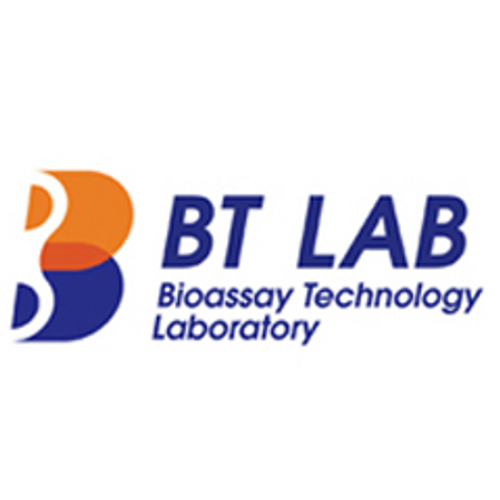Product Description
Human A Disintegrin And Metalloprotease 33 (ADAM33) ELISA Kit | AE23803HU | Abebio
Species Reactivity: Human (Homo sapiens)
Abbreviation: ADAM33
Alternative Name: RP5-964F7.2; C20orf153; DJ964F7.1; DKFZp434K0521; FLJ35308; FLJ36751; MGC149823; MGC71889; a disintegrin and metalloprotease 33|a disintegrin and metalloproteinase domain 33|disintegrin and reprolys
Application: ELISA
Range: 0.156-10 ng/mL
Sensitivity: 0.054 ng/mL
Intra-Assay: ≤3.8%
Inter-Assay: ≤7.5%
Recovery: 0, 88
Sample Type: Serum, Plasma, Other biological fluids
Detection Method: Sandwich
Analysis Method : Quantitive
Test Principale: This assay employs a two-site sandwich ELISA to quantitate ADAM33 in samples. An antibody specific for ADAM33 has been pre-coated onto a microplate. Standards and samples are pipetted into the wells and anyADAM33 present is bound by the immobilized antibody. After removing any unbound substances, a biotin-conjugated antibody specific for ADAM33 is added to the wells. After washing, Streptavidin conjugated Horseradish Peroxidase (HRP) is added to the wells. Following a wash to remove any unbound avidin-enzyme reagent, a substrate solution is added to the wells and color develops in proportion to the amount of ADAM33 bound in the initial step. The color development is stopped and the intensity of the color is measured.
Product Overview: ADAM33 encodes a member of the ADAM (a disintegrin and metalloprotease domain) family. This protein is a type I transmembrane protein implicated in asthma and bronchial hyperresponsiveness. Alternative splicing of this gene results in two transcript variants encoding different isoforms.The 813-amino acid human protein shares 70% identity with the mouse protein. ADAM33 has a domain organization identical to that of previously reported members of the ADAM family, and contains the typical zinc-binding consensus sequence in the metalloprotease domain and a pattern of cysteine localization in the EGF-like domain that is typical of an EGF-like motif. The human protein shows 44% identity with Xenopus ADAM13, 40% with human ADAM19, and 39% with human ADAM12.
Stability: The stability of ELISA kit is determined by the loss rate of activity. The loss rate of this kit is less than 5% within the expiration date under appropriate storage condition. The loss rate was determined by accelerated thermal degradation test. Keep the kit at 37°C for 4 and 7 days, and compare O.D.values of the kit kept at 37°C with that of at recommended temperature. (referring from China Biological Products Standard, which was calculated by the Arrhenius equation. For ELISA kit, 4 days storage at 37°C can be considered as 6 months at 2 - 8°C, which means 7 days at 37°C equaling 12 months at 2 - 8°C) .
 Euro
Euro
 USD
USD
 British Pound
British Pound
 NULL
NULL








